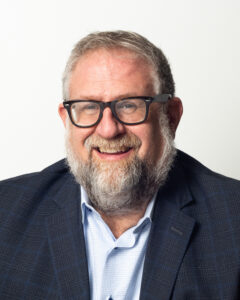By Matt Golden
Director, Jewish Community Relations Council
A week or so ago, JCRC member Ben Vaughan and I attended the West Louisville Forum. One of the two panelists was J. Michael Brown, Director of Constitutional Studies at Simmons College, Louisville’s only HBCU (if you do not know Professor Brown’s contributions to Kentucky, I suggest a visit to Google). We were there to hear about the impact of the Supreme Court’s decision in Students for Fair Admissions v. Harvard, which upended nearly 50 years of racial remediation efforts in colleges and universities.
During the Simmons talk, a student asked what the future held for minorities in America. Prof. Brown responded by saying, “The future is in your hands, but if you fail to vote, you are discarding all the efforts of the people that went before you.” I’ve been thinking a lot about what he said — especially about those “people that went before” us and how we are treating the sacrifices they made.
Sixty years ago on Sept. 15, 1963, four little girls were killed in a Birmingham church bombing. Their church was targeted as a center for minority voting rights by the KKK; the Klan was willing to kill to prevent voting. Those murdered little girls—11-year-old Denise Nair and 14-year-olds Cynthia Wesley, Carole Robertson and Addie Mae Collins—were child victims in the battle over whether all Americans could vote.
A few months later in Mississippi, Black people and their allies started a voter registry drive in Hattiesburg. There was not a single Black voter registered to vote despite a local population of over 15,000 Black people. On January 21, 1964, when more than 200 people lined up to register, the registrar in the county seat allowed only 20 people to go through. Day after day, week after week, those wanting to register to vote returned in rain and in shine in what is known today as the perpetual picket. They stood in line for months for the right to vote.
In Philadelphia Mississippi, three voter registration workers went missing in May of 1964. James Chaney, Andrew Goodman, and Michael Schwerner—a Black man and two Jewish men—had been working with the Congress for Racial Equity (CORE) to register new voters. They were found months later, buried in an earthen dam—with evidence that one, Goodman, was buried alive. During the search, the bodies of eight others, all Black, were found nearby, including a man with a CORE button still pinned to his clothes. The Klan and the local police were convicted of their torture and murder.
When J. Michael Brown talked about “the people who went before,” surely he thought of these people and the countless others who invested in our rights with their lives.
Our nation has always been a work in progress. Our founders set up a democracy in a world peopled with kings, one of the most impressive feats in world history. Yet, we also started with a compromise in our Constitution guaranteeing representation only for some. That “compromise” counted enslaved Americans as 3/5 of a citizen for representation purposes but denied them everything else. In 1857, the Supreme Court’s Dredd Scott decision reaffirmed that African Americans, free or enslaved, were not citizens at all. It wasn’t until the 13th and 14th Amendments in 1865 that these injustices began to be addressed. Similarly, it wasn’t until 1920 that every gender had the right to vote in our country. And it wasn’t until the Voting Rights Act of 1965 that racial discrimination in voting was outlawed.
It was the “people that went before” us who did that for us.
What are we doing with that legacy gift? Kentucky has a high percentage of registered voters – more than 3.4 million. Yet, in the last general election there was less than 42% voter turnout. Nearly two million registered Kentuckians failed to vote. Even more troubling are the statistics about our belief in democracy in general. According to a recent study reported by the Jewish Partnership for Democracy, “Americans – especially young Americans – are less convinced they can effectively influence public policy and are more open to exploring authoritarian alternatives than at any other time in the last 100 years.” In short, many would choose to go backwards, returning to “the fleshpots of Egypt.”
As a Jew, I am well aware that our people have been a subject people for almost all of the last two millennia. Autocrats and tyrants kept or expelled us at whim; “new pharaohs arose” who did not know us. It is only within the last couple of hundred years that allowing a Jewish person a say in a representative government has even been conceivable. That started here in America. But many of our fellow citizens didn’t gain those same rights until recently, if at all.
Think again about what J. Michael Brown said: “If you fail to vote, you are discarding all the efforts of the people that went before you.” “Discarding” was used deliberately. If we fail to vote, we are throwing away the work of those that went before us here in this country and in the thousands of years of our diaspora. Their sacrifices should not fall so lightly from our hands.
Election day is Nov. 7, 2023. Additionally, ten “no excuse” voting locations will be open across Louisville on Nov. 2, 3 and 4. Absentee ballots are available as well, and the JCRC has provided voting information on our website at https://jewishlouisville.org/federation/jcrc. Free public transportation to the polls will also be available. So please vote — and help someone else to remember to vote, too.
Matt Golden is a lawyer and the Director of the Jewish Community Relations Council. In his opinion, the JCRC is the most august body in the Jewish Community, seeking justice and doing tikkun olam. He is admittedly very partial and biased in this regard. He invites comments, suggestions or good stories at mgolden@jewishlouisville.org.




